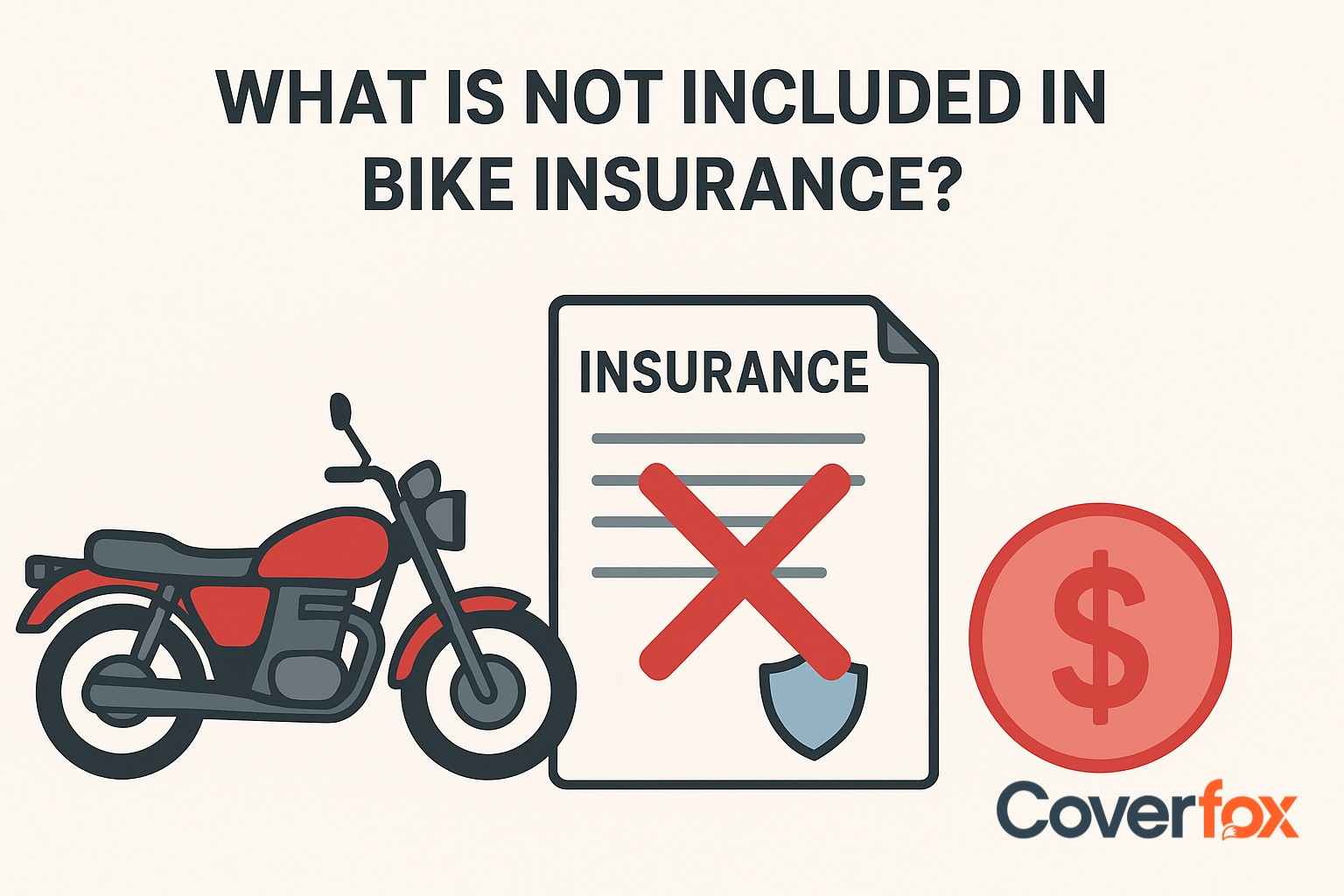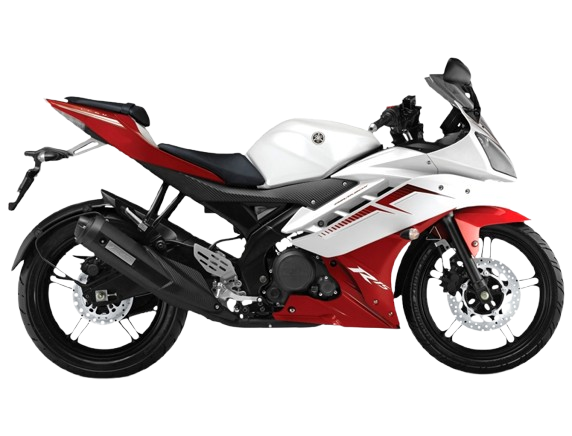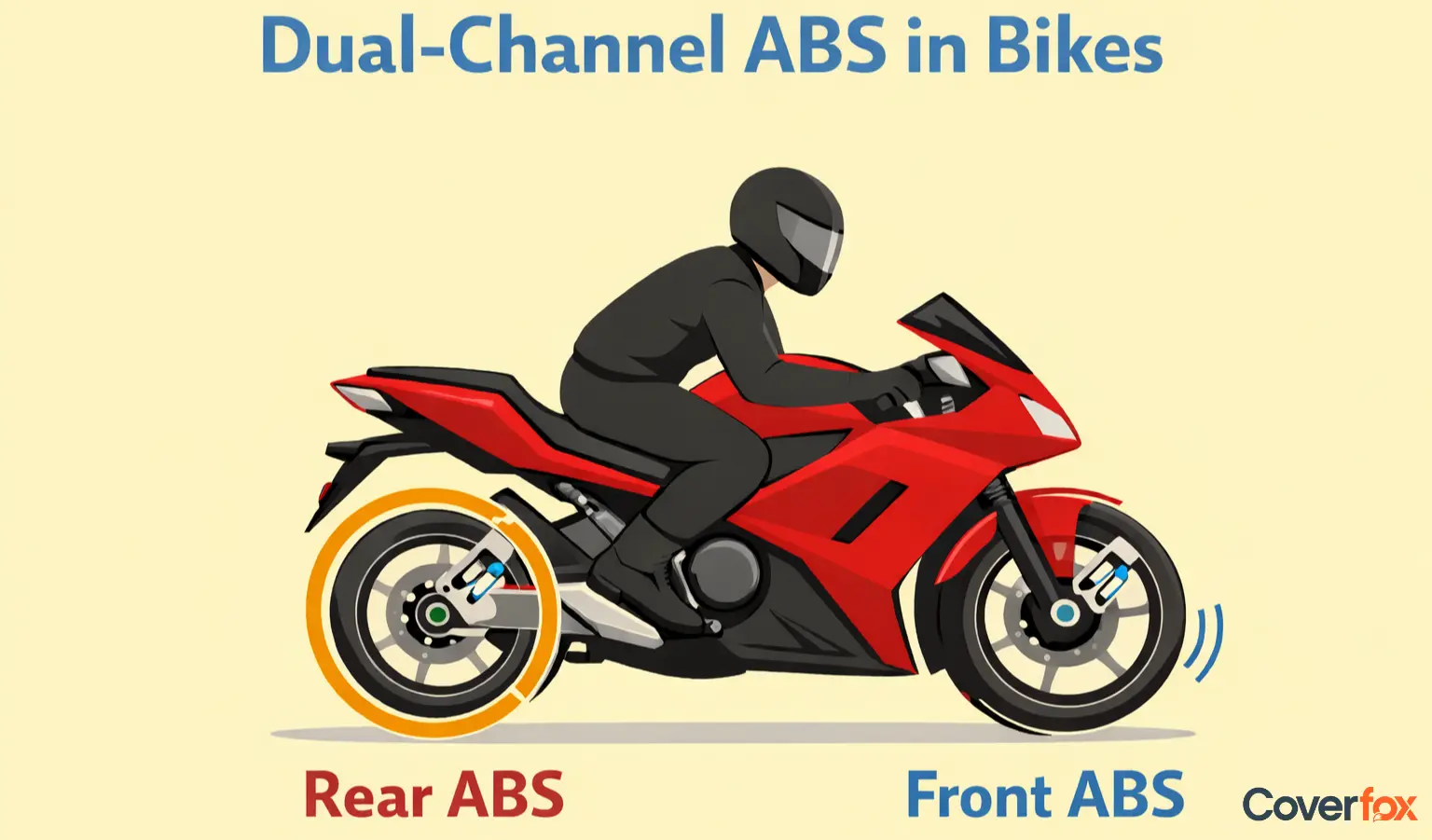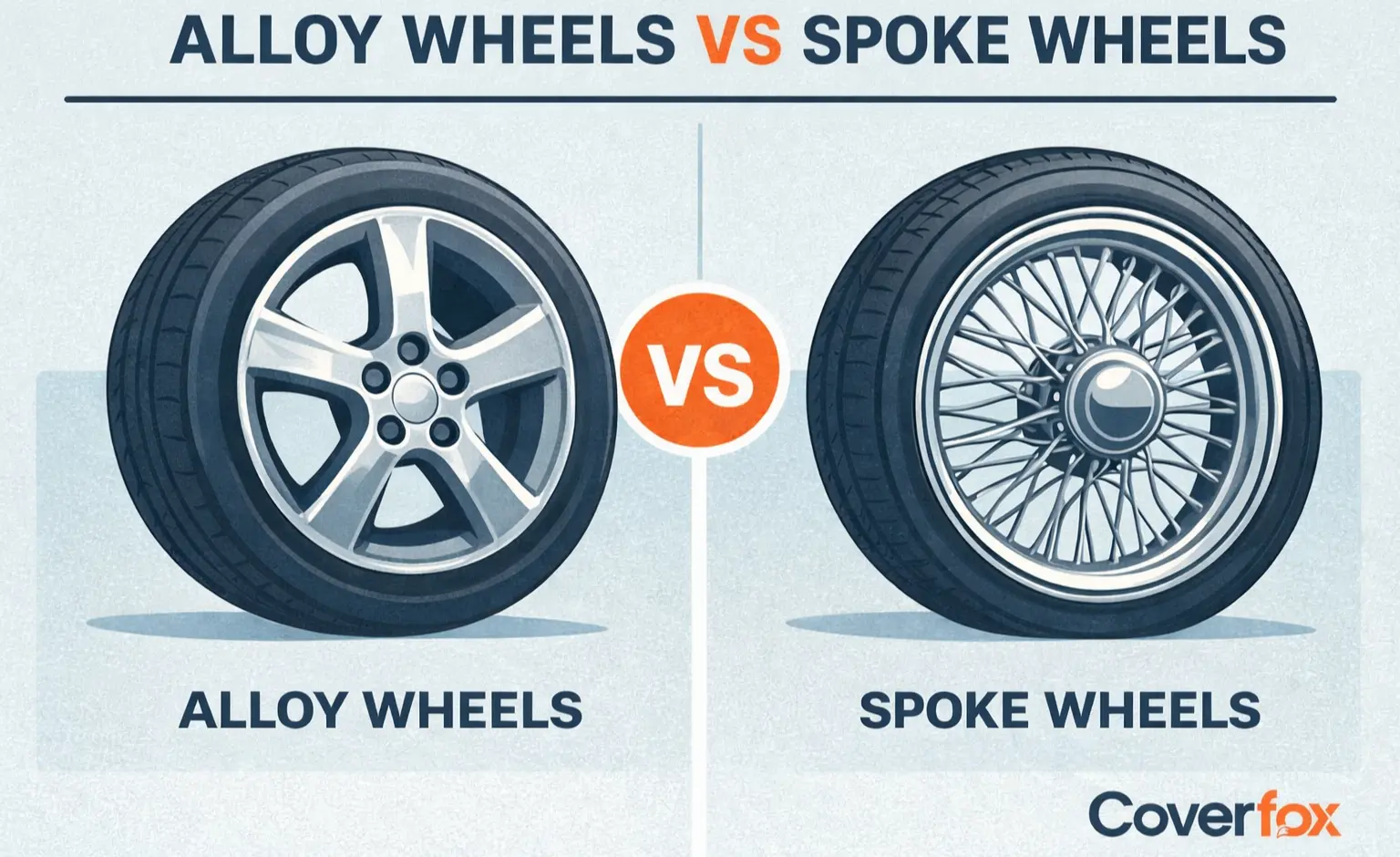Two wheeler insurance protects you from financial losses due to accidents, theft, and third-party damages. But it’s equally important to understand what your policy doesn’t cover — the exclusions that could lead to claim rejection.

Every policy comes with some exclusions where they don’t provide financial protection against risks. These exclusions apply to both the Comprehensive type of Bike Insurance Policy and the Third-Party Bike Insurance Policy. Knowing them helps you avoid claim rejections and maintain proper ownership.
Third-Party Bike Insurance Exclusions
A third-party bike insurance policy only covers damages and injuries caused to others. It does not extend protection to the policyholder’s own losses.
Own Damage to the Bike
Driving Without Valid Papers
Intentional or Fraudulent Acts
Contractual Liability
Riding Without a Valid Licence
Driving Under the Influence of Alcohol or Drugs
Repairs or replacement costs for the insured bike are not covered under a standard third-party policy. Such coverage is only provided by a comprehensive insurance policy, which protects both the bike and third-party liabilities. Without this, any accidental damage to your own vehicle must be borne entirely by the owner. Comprehensive policies also include additional benefits like natural calamity or fire damage, making them essential for full protection.
Your claim can be rejected if you don’t carry valid documents like a driving licence, registration certificate (RC), or an active insurance policy at the time of the accident. Insurers consider it a legal violation, and no coverage applies in such cases.
If an accident is caused intentionally or to make a false claim, the insurer will deny coverage. Insurance is meant for genuine, unforeseen accidents — not deliberate or staged incidents.
Liabilities arising from private contracts or agreements made by the policyholder, beyond what is mandated under the Motor Vehicles Act, are not covered. Insurance only protects against legal obligations towards third parties in accordance with the law. Any private agreements, such as promises to pay for another person’s property damage or additional penalties, fall outside the scope of standard policies.
The insurer rejects the raised claim if the person riding the bike doesn’t have a valid and active driving licence, or if the vehicle is ridden by a minor. Even a learner’s licence without a supervisor can invalidate claims. Your claim will only be approved if you hold a valid and active driving licence.
Accidents occurring while the rider is intoxicated by alcohol or under the influence of drugs are strictly beyond coverage limits. Deliberate recklessness like drunk driving is not protected, and the policyholder must bear the financial loss.
Comprehensive Bike Insurance Exclusions
A comprehensive bike insurance plan covers both own damage and third-party liability; however, certain events are outside of this plan.
Commercial Usage Without Notification
Lack of Proper Maintenance
Mechanical or Electrical Breakdown
Accidents Outside Approved Areas
Theft Due to Carelessness
Damage Due to War, Riots, or Terrorism
Nuclear and Radioactive Incidents
Loss of Helmets and Protective Gear
Using the Bike for Racing or Illegal Activities
If your bike is insured for private use but used for deliveries, rentals, or other business purposes without notifying your insurer, your claim may be rejected. Policyholders must update their insurer about any change in usage to stay eligible for coverage.
Claims can be denied if an accident occurs because of poor maintenance or negligence by the bike owner, e.g., bald tyres, broken headlights, faulty brakes, or leaking fuel systems. Insurers expect the bike to be kept in roadworthy condition at all times.
Standard bike insurance does not cover regular wear and tear or mechanical breakdowns like engine seizure, battery failure, or electrical faults. Such costs must be borne by the owner.
Most two-wheeler insurance policies apply only within India, unless otherwise mentioned. If the bike is taken beyond the territorial limits specified in the policy, the coverage becomes invalid.
If theft happens due to the owner’s negligence, e.g., leaving keys in the ignition or parking in unsafe areas, the insurer may reject the claim. Riders must take reasonable precautions to secure their bikes.
Losses arising from war, riots, terrorism, or similar large-scale disturbances are excluded. Such events are typically covered by special government or disaster schemes.
Any loss or damage caused directly or indirectly by nuclear radiation, contamination, or explosions involving radioactive substances is excluded. Insurance only covers regular road risks, not extraordinary threats like radiation exposure.
Standard two-wheeler policies cover the bike itself, not personal items like helmets, gloves, jackets, or riding gear. Some insurers offer add-on covers for protective gear.
If the bike is used in races, rallies, stunts, or unlawful activities, any resulting damage will not be covered. Coverage applies only to lawful and responsible use.
NOTE: Exclusions except OD cover under third-party bike insurance will also come under the comprehensive bike insurance policy. For accurate exclusions, refer to your policy document thoroughly.
Misconceptions about the Exclusion in Two Wheeler Insurance
Many bike owners mistakenly assume their insurance covers every kind of loss or damage. Exclusions are specific situations where the insurer will not pay, and misunderstanding them can lead to denied claims. Some of the most frequent misconceptions include:
Assuming All Accidents Are Covered
Believing Own Bike Damage Is Automatically Included
Assuming Commercial Use Is Allowed
Believing All Riding Gear Is Covered
Ignoring Paperwork Requirements
Thinking Fraud or Intentional Damage Is Covered
Accidents due to negligence, intoxication, or illegal use are excluded.
Standard third-party insurance only covers damage to others’ property and liabilities, not the rider’s own bike. Comprehensive insurance is needed for own-damage coverage.
Using a personal bike for deliveries, rentals, or business commuting without informing the insurer can void coverage.
Standard bike insurance does not cover helmets, gloves, or jackets unless you’ve purchased an accessory or personal gear add-on. Check your insurer’s add-on list to extend protection.
Riding without valid documents (licence, RC, active policy) can lead to claim rejection.
Claims for accidents caused intentionally or with fraudulent intent are strictly denied. Insurance is meant only for genuine, unforeseen incidents.
Conclusion
Understanding your bike insurance means knowing both what’s covered and what’s not. By being aware of common exclusions — like invalid documents, negligent use, or unreported commercial activity — you can avoid denied claims and stay financially protected. Always review your policy document and consider useful add-ons like Zero Depreciation, Engine Protect, or Personal Accident Cover for full protection.
Read More:
Frequently Asked Questions
Which parts are not covered in bike insurance?
Parts damaged due to wear and tear, mechanical failure, or negligence are not covered under standard bike insurance.
Is the battery covered in bike insurance?
No, battery damage caused by normal wear and tear or electrical failure is not covered.
Are tyres covered under bike insurance?
Tyres are not covered for regular wear and tear. However, if they’re damaged during an insured accident, you may be compensated — depending on your insurer’s terms or add-ons.
What is full cover bike insurance?
Full cover or comprehensive bike insurance protects both third-party liabilities and accidental damage to your own bike.


.webp)



